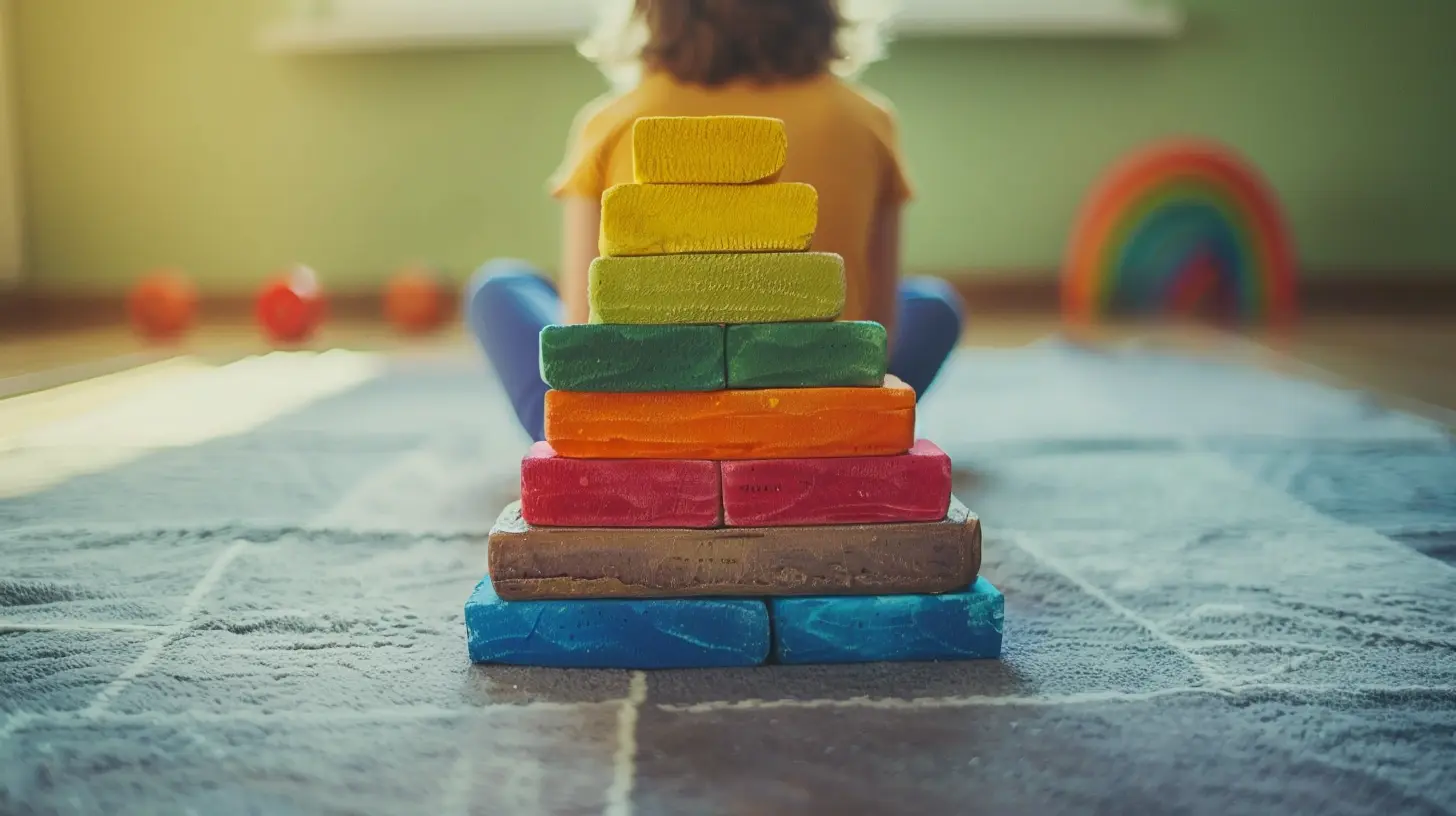Reducing Stress for Parents: Finding Balance in Daily Chaos
25 September 2025
Let’s be honest—parenting is the most rewarding job in the world... and sometimes the most exhausting. Between school drop-offs, lunch packing, endless laundry, work deadlines, and maybe even a tantrum before breakfast, life as a parent can quickly start to feel like a never-ending rollercoaster.
If you’ve found yourself lying awake at 2 a.m., replaying the day like a blooper reel or wondering how you're supposed to be everything for everyone—welcome to the club. You're not alone, and more importantly, it doesn’t have to be this way.
This post isn’t about being a perfect parent (because, spoiler alert: that doesn’t exist). It’s about finding moments of peace and creating balance in the middle of daily chaos. Let’s unpack some practical strategies to help reduce stress, protect your mental health, and maybe even sneak in a little peace and quiet (imagine that!).
Understanding Parental Stress: You're Not Alone
Stress in parenting? Completely normal. But just because it's common doesn't mean you have to settle for surviving instead of thriving.Stress shows up in different ways—short fuse, mental fog, emotional outbursts, or just feeling like you're constantly "on." And it builds up. If it’s left unchecked, it can lead to burnout, health problems, and even take a toll on your relationships with your kids and partner.
Imagine trying to pour from an empty cup. That’s what stressed parenting looks like. So, let’s talk about how to refill that cup—sip by sip—so you can show up as your best self, for your family and for YOU.
Step 1: Cut the Comparison Trap
Social media: great for cute baby pics, awful for self-esteem.We live in a world where everyone’s highlight reel is on display, making it easy to feel like you’re falling behind. One minute you’re watching a mom artistically shape cucumbers into dinosaurs, and the next minute you’re wondering why your kid’s lunch is a crumpled PB&J in a plastic bag.
Here’s the truth: comparison kills contentment. Every family is different. Every parent has strengths and struggles. Staying in your lane and focusing on what works for your household is one of the best gifts you can give yourself.
Step 2: Embrace "Good Enough"
Perfection is overrated—and exhausting.Sometimes the dishes stay in the sink overnight. Sometimes screen time goes a little long. Sometimes cereal is dinner—and you know what? That’s okay. Kids don’t need a perfect parent; they need a present one.
By letting go of unrealistic expectations, you make room for grace. And giving yourself grace as a parent is like giving yourself oxygen on a plane—you’ll breathe easier, and so will your kids.
Step 3: Build a Routine That Works for YOU
Routines are like anchors in the chaos—creating predictability that helps you and your kids feel secure.But here’s the kicker: your routine doesn’t have to look like anyone else’s. It just has to work for your family. Morning meltdowns? Try prepping clothes and backpacks the night before. Dinner-time drama? Create a rotating meal plan to cut down decision fatigue.
The key is consistency—when you make even a few parts of your day predictable, it can seriously lower your stress.
Step 4: Prioritize Sleep—Seriously
Think skipping sleep buys you more hours? It actually steals them.When you’re sleep-deprived, everything feels harder. Your patience wears thin, your thinking gets fuzzy, and your emotional resilience dips big time.
Aim for at least 7–8 hours a night (even if you have to trick yourself into bedtime by saying, "Just gonna lie down for five minutes"). If your kids are little and still disrupting your nights, nap when they nap or sneak in micro-rests throughout the day.
Your brain and body will thank you.
Step 5: Create Micro-Moments of Self-Care
Self-care doesn’t have to mean spa days and weekends away (though sign us up for those, too). It can be as small as five quiet minutes with your coffee before the kids wake up, or listening to your favorite song after school drop-off.Think of these moments like emotional snacks—quick, nourishing, and necessary. You don’t have to wait for a vacation to take care of yourself. The daily mini-breaks are what keep burnout at bay.
Try this: Set a timer for five minutes once a day to do something just for you. Stretch. Meditate. Read. Breathe. You’ll be amazed at what a difference it makes.
Step 6: Ask for Help (Yes, You Can!)
Here’s a life truth that too many parents overlook: You’re not supposed to do it all alone.Asking for help isn’t weakness—it’s strength in action. Whether it’s swapping carpool duties with a neighbor, asking your partner to handle bedtime, or simply venting to a friend, reaching out lightens your load.
And let’s normalize hiring help when possible—cleaning services, meal kits, babysitters. You’re not failing if you get support; you’re investing in your sanity.
Step 7: Connect with Other Parents
Community is your secret weapon.No one gets the parenting juggle like another parent. Surrounding yourself with people who understand what you're going through can be reassuring, validating, and even healing.
Join a local parent group, an online forum, or even just text a friend during those "I can't do this" moments. A little shared laughter or empathy can go a long way.
Step 8: Practice Mindfulness (Without Making It a Chore)
Mindfulness doesn’t have to mean sitting cross-legged and breathing deeply (unless you want it to). It just means being present.Try this: next time you're cooking dinner or folding laundry, check in with yourself. How’s your breathing? What’s going through your mind? What can you smell, hear, or see?
The more present you are, the less likely your stress is to spiral. It brings you back to the now—which, more often than not, is where everything is actually okay.
Step 9: Set Boundaries—With Everyone (Yes, Even Your Kids)
Boundaries are not barriers; they’re bridges to sanity.Say no when you’re stretched too thin. Decide what hours you're available for work emails. Teach your kids when mom or dad needs a few minutes alone.
Boundaries are how you teach others to value your time and energy—and they help you protect your mental space.
Step 10: Laugh Often and Don't Take Everything So Seriously
Sometimes the best response to chaos is a good belly laugh.Laughter lowers cortisol levels (your body’s main stress hormone), improves mood, and helps you connect with your kids in a fun way. So go ahead—wear the tiara, dance in the kitchen, make a funny face when things go wrong.
Remember that some of your most stressful parenting moments will one day be hilarious family stories. Why not start laughing now?
What About When Stress Becomes Too Much?
If you’re constantly feeling overwhelmed, burnt out, or not like yourself—it might be time to talk to someone. And that’s okay.Mental health support isn’t just for crisis moments. Therapy, coaching, or even a simple chat with your doctor can make a world of difference. You're not broken, you’re just human.
Asking for help is one of the bravest and healthiest things you can do—not just for you, but for your whole family.
Finding Your Unique Balance
No parenting guide fits everyone, and no one has it all figured out (despite what Instagram might suggest).What works today might not work tomorrow, and that’s okay. Balance isn’t about having it “all together.” It’s about adjusting, adapting, and finding peace wherever you can—even in the midst of cereal-covered counters and toy-strewn floors.
Progress, not perfection, is the goal.
So, take a deep breath—you’re doing better than you think.
Final Thoughts
Parenting is beautiful, messy, hilarious, and hard—sometimes all in the same hour. Reducing stress isn’t about escaping the chaos entirely. It’s about learning how to dance in the middle of it.Start small. Choose one tip from this post to try today. Then slowly stack on others as you go. You don’t need to overhaul your entire life overnight—just begin where you are, with what you have.
Your well-being matters. You matter.
You’ve got this.
all images in this post were generated using AI tools
Category:
Stress ManagementAuthor:

Arthur McKeever
Discussion
rate this article
1 comments
Zoey McIntosh
Great insights! I'm curious about practical tips for integrating mindfulness into a busy parenting schedule. What quick strategies can parents implement to find that elusive balance?
October 4, 2025 at 3:41 AM

Arthur McKeever
Thank you! Here are a few quick strategies for integrating mindfulness into your busy parenting schedule: 1. **Mindful Moments**: Take a few deep breaths when transitioning between tasks or activities. 2. **Mini Meditations**: Spend just 2-5 minutes focusing on your breath during quiet moments, like waiting in line. 3. **Mindful Play**: Engage fully in playtime with your children, putting aside distractions for a few moments. 4. **Gratitude Journaling**: Write down one thing you’re grateful for each day—it shifts your perspective. 5. **Routine Check-Ins**: Set reminders to pause and check in with yourself throughout the day. Small practices can make a big difference!


